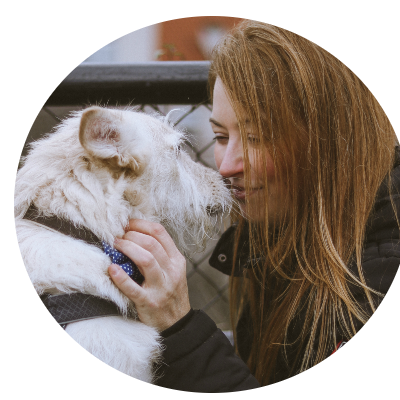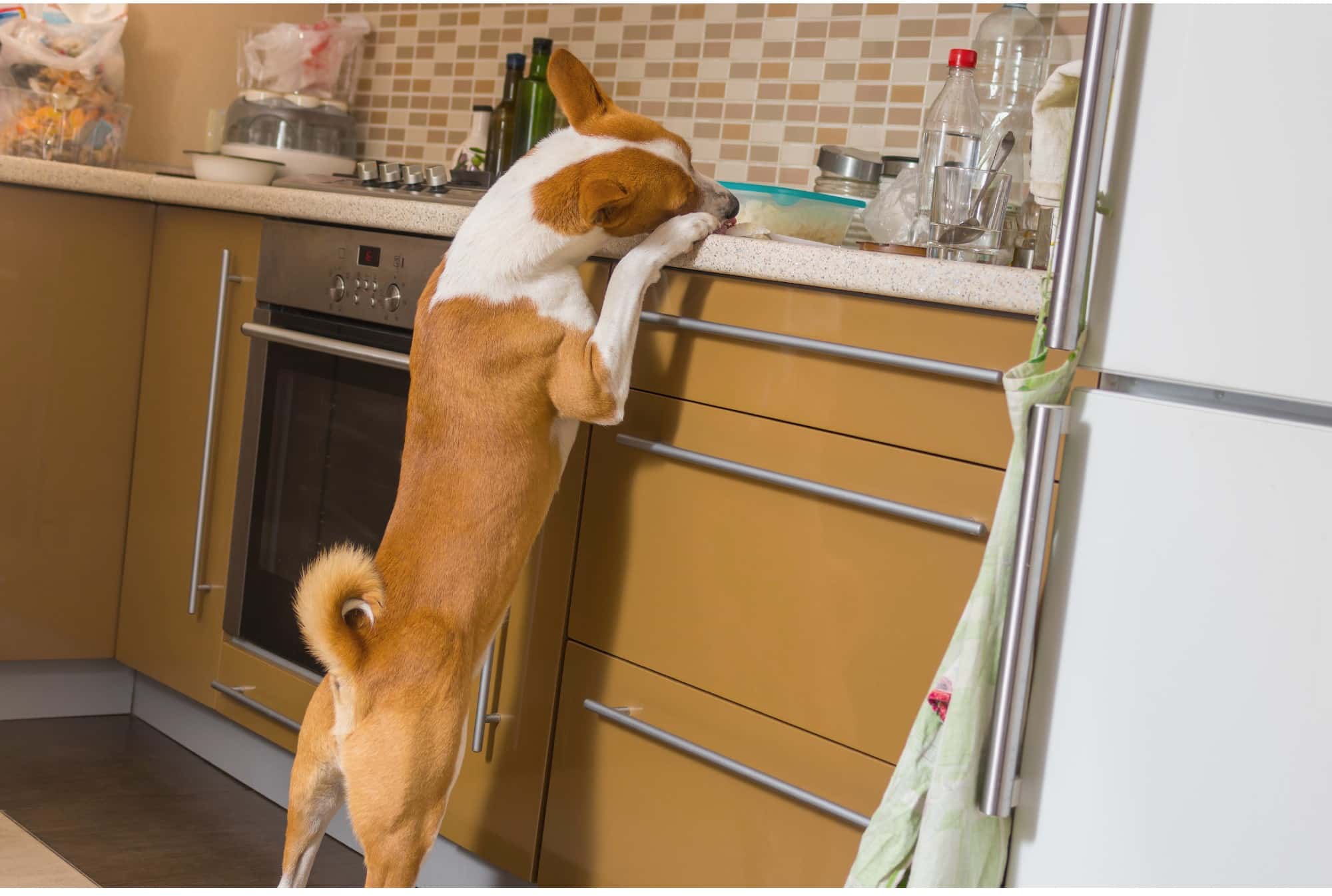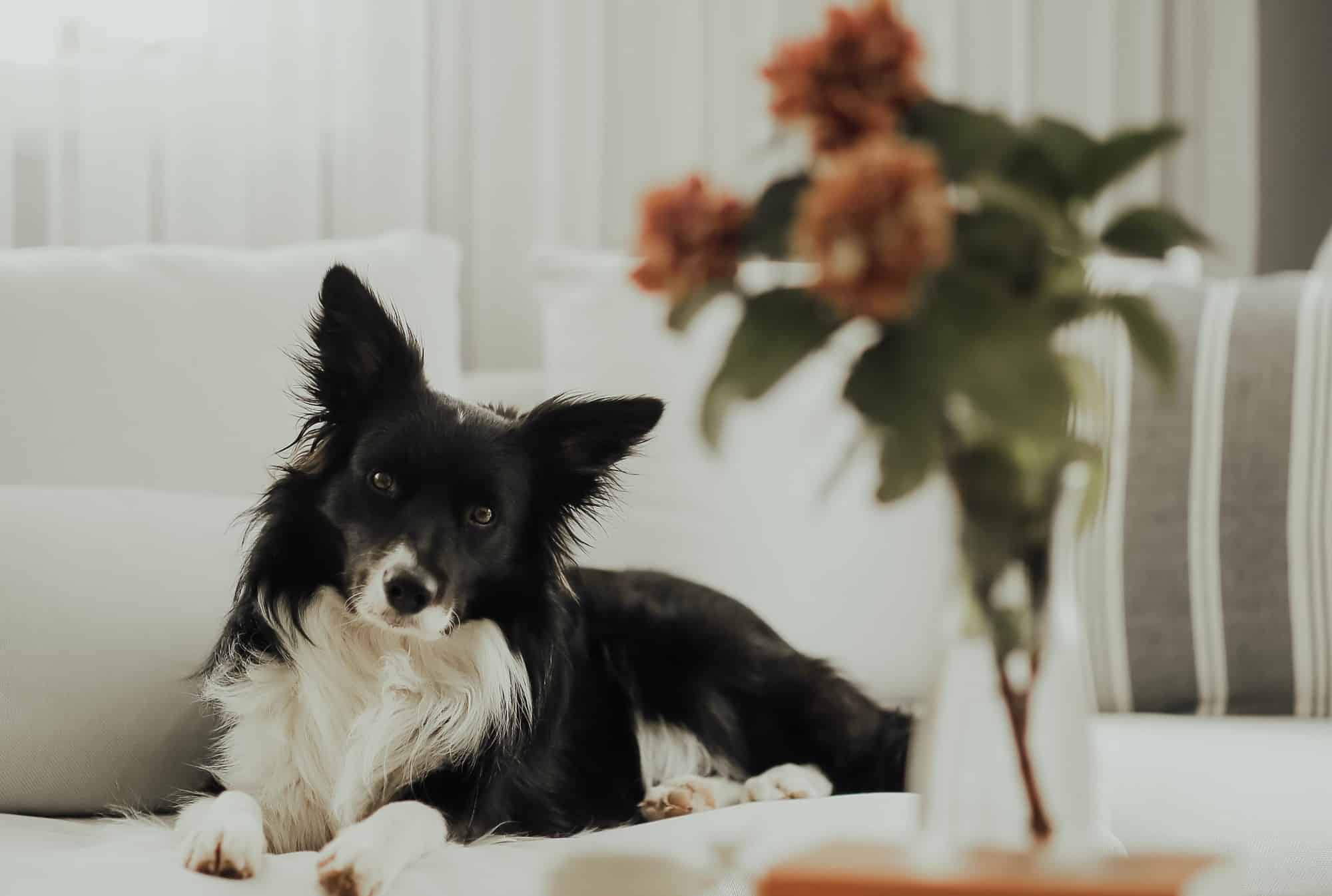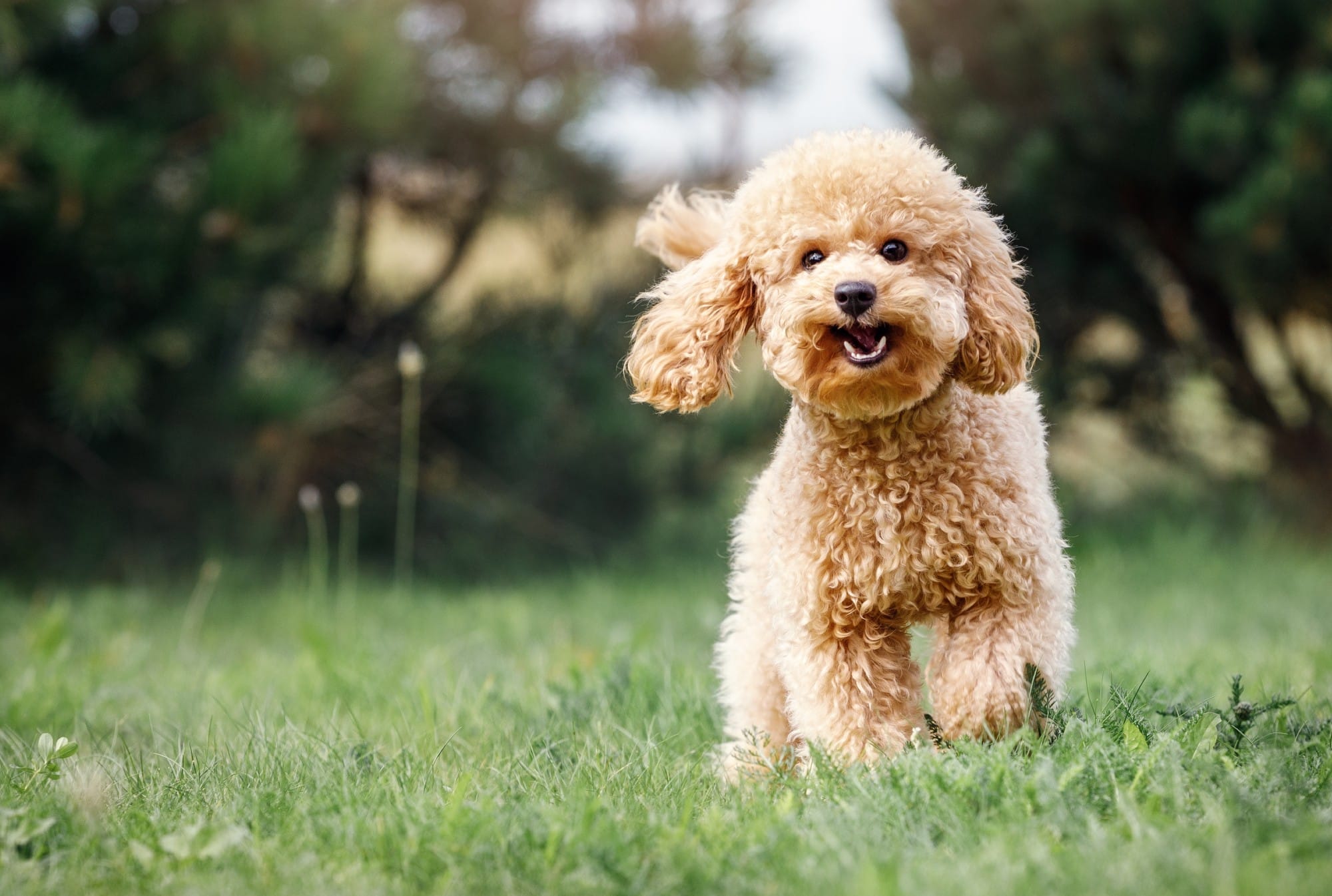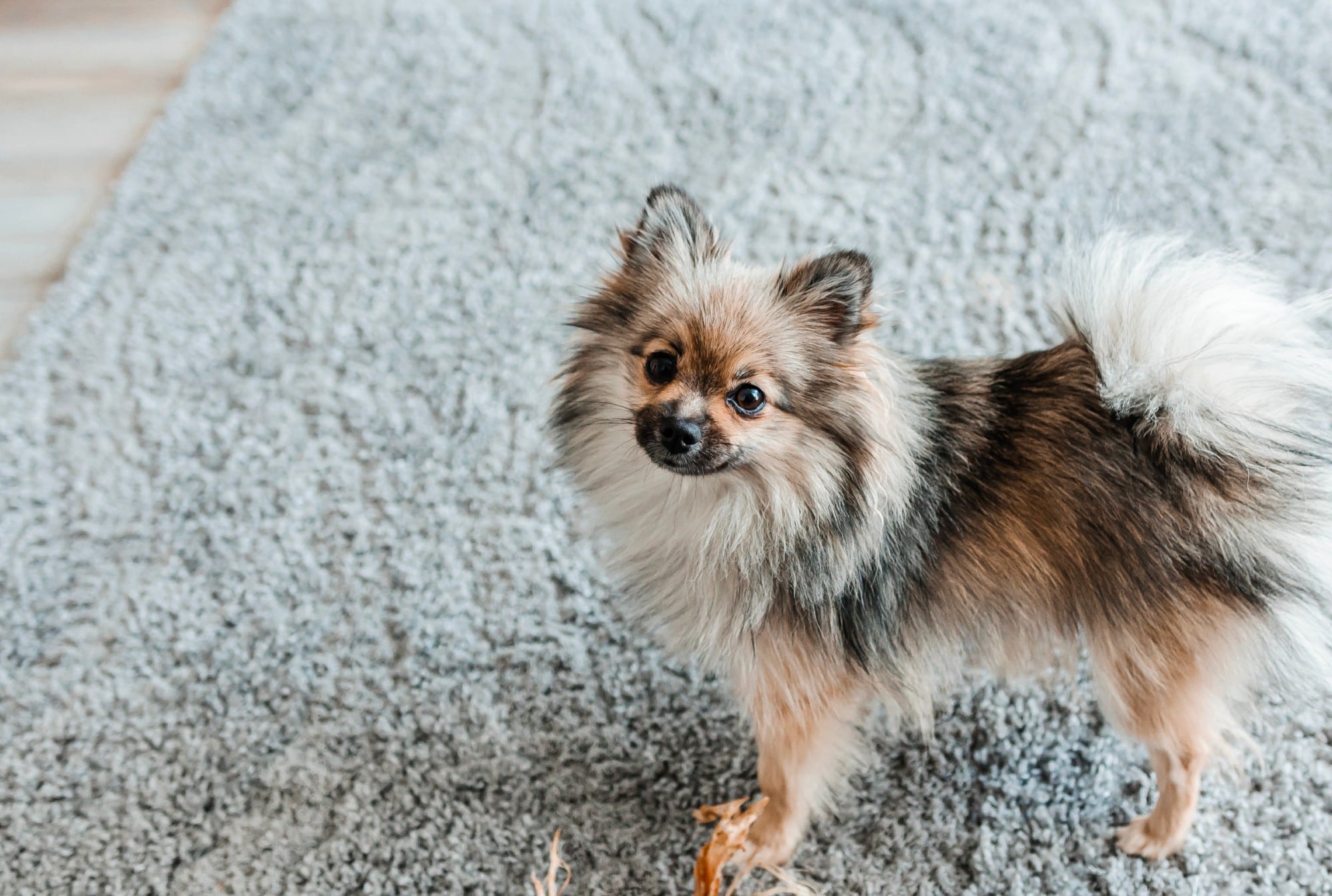As a dog parent, you’re likely no stranger to the sight of your four-legged friend’s nose buried in the trash can, or a suspicious pair of paw prints right on the edge of your kitchen counter. And who can forget the infamous BBQ grill takedown attempts in the pursuit of a juicy steak?
Yes, dogs are food thieves — some more than others. There are those who are unashamedly bold, jumping on counters and digging head-first into trash cans. Others are experts at stealthy pantry raids. Either way, this frustrating canine behavior has puzzled and exasperated dog owners for generations.
Why exactly do dogs steal food? And can you do anything to stop it?
Why Does My Dog Counter-Surf?
Counter-surfing is just what it sounds like: basically trying to steal whatever food you happened to leave on the kitchen counter. And can we blame them?
Dogs are natural foragers and depend on their nose to explore their environment, navigate their surroundings, and locate food, which can result in jumping on counters, tipping over trash cans, or getting into pantries.
While the simple answer to why dogs get into our food is that it tastes delicious to them, there are other reasons for your dog trying to steal food. Maybe you’re not feeding them enough, or they’re bored and looking for a way to entertain themselves. It could also be a deeper issue like separation anxiety or even a medical condition.
Whatever the reason, food theft can be dangerous, especially if you have one of those dogs that will consume anything within reach, including toxic substances — from corn on the cob potentially causing intestinal blockages to fatty items triggering pancreatitis, and even fatal foods like chocolate.
How Do I Stop My Dog From Stealing Food Off the Table?
Food is its own reward, so it’s hard to convince your pup to give up the never-ending access to yummy snacks. According to Victoria Stilwell, positive reinforcement dog trainer and star of the TV series It’s Me or the Dog, “the most realistic solution to counter surfing is to use a combination of management and training techniques.”
Here are some tips on keeping dogs off counters and tables (and trash cans and BBQ grills!).
Rule Out Deeper Issues
A number of underlying health issues could be causing your dog to feel hungrier than usual. If the sudden desperation to steal food is new, you should reach out to your vet to see if something’s going on.
Health problems like hyperthyroidism, diabetes mellitus, certain parasites, and inflammatory bowel disease (IBD) or other conditions that affect nutrient absorption can all cause an increase in appetite. Although some of these conditions are particularly common in puppies, they can show in dogs of any age, according to VCA Hospitals.
Certain medications (such as prednisone) also increase appetite, and PetMD points out that “psychological issues, such as anxiety or stress” as well as aging and learned behavior are also common causes of extreme hunger in dogs.
Related: Small Changes, Big Impact: How Adjusting Your Daily Dog Routine Can Help Save the Environment
Remove the Sources of Temptation
When it comes to stopping your dog from stealing food, the best solution is prevention. No food around means there’s nothing for your dog to steal — and it’s a lot easier (for humans too!) to break a habit when you’re not constantly surrounded by temptation.
So before anything else, learn to secure your trash can. You know that amazing cheesecake you just ate? Your dog wants all the crumbs that are now in the garbage, but in the process of digging for them, they might come into contact with harmful substances that are also there.
The answer? Switch to a trash can with a tight-fitting lid (there are even dog-proof trash cans for particularly persistent or clever pooches). If that doesn’t work, consider storing the trash can in a closed cabinet or pantry.
Next, make sure you limit access to food. That means all food items are stored out of your dog’s reach at all times — no food on low tables or countertops where your dog could easily jump up and grab it, no dirty dishes left on the kitchen table after eating, and absolutely no food near the kitchen counter edges to prevent your dog from snatching the food.
“Dogs have very keen memories, especially for behaviors that paid off big time, so if your dog is successful once in stealing steak or roast chicken from the counter, they’re going to be highly motivated to keep revisiting the site of their previous bounty, “explains Amanda Dwyer, a certified trainer and owner of Westward Hound.
For this reason, Dwyer says is just a lot easier to block their access to the kitchen entirely than try to train them to resist temptation. “Typically the easiest way to prevent this habit from continued success is to use baby gates, or folding pet barriers to block unsupervised access to the kitchen,” according to Dwyer. “This way, if you are like me, and prone to sometimes leaving something tempting on the counter, the only thing you need to remember is to close the gate behind you.”
Keep Your Dog Well Fed
Calorie needs vary throughout a dog’s life. Younger, very active dogs need more food than senior dogs who would just rather nap the day away. Things like stress and emotional issues also affect your dog’s appetite.
Sometimes the source of the problem is as simple as changing foods but feeding the same amount you were feeding from the previous food. The problem with this? Every brand requires different amounts of food to meet your dog’s requirements, so make sure you check labels to confirm you’re feeding the right calories.
Without adjusting food intake accordingly, you might end up with a dog that’s counter-surfing for the most basic reason: he’s just very hungry.
Make Dinner Time Exciting
Dogs are natural foragers, so eating food out of a bowl is not exactly thrilling. It also does not provide mental stimulation and it does not allow your dog to work for their food.
Giving dogs opportunities to “hunt” for their food is a great way to meet their mental needs and can in turn prevent “foraging” on your counter or trash can. “This can be as simple as scattering kibble in the grass or leaf piles, hiding treats indoors or out, or loading up a treat puzzle toy,” Dwyer says.
Using toys that recreate chasing prey is another great way to meet their physical needs, she adds. “I love flirt poles for this activity, especially the ones that have critter plushies as lures, and fetch is a great way to tap into your dog’s desire to chase and capture prey,” says Dwyer.
These activities alone won’t cure an existing habit of counter-surfing, but they can help prevent one from starting by meeting a dog’s physical and mental needs.
Should I Punish My Dog for Stealing Food?
Besides being a fruitless endeavor, punishing a dog for what is not only normal dog behavior, but possibly its most successful strategy for survival over the eons, will only serve to damage your relationship and bond with them, Dwyer explains. “How would you feel if your spouse or family member ran into the kitchen and yelled at you every time you opened the fridge,” Dwyer says. “Remember, dogs don’t really have a concept of ‘mine’ and ‘yours’ the same way we do.”
Instead of wasting energy reacting to a problem, Dwyer suggests applying all that energy into preventing the problem from even happening.
Teach and Reward Good Behavior
Forget the old-school aversive techniques like putting foil paper on the counter or even using “scat mats” to shock your dog if he attempts to jump on a chair to reach a table. Stilwell says that even when and if they work, they might cause trauma and distress and might even make your dog afraid of the kitchen in general.
Instead, she recommends focusing on teaching your dog the “stay” and “leave it” cues and rewarding them for respecting those cues. This is a type of training that rewards your dog’s positive choices instead of punishing for a behavior that is perfectly natural. Plus, your pup is smart: Dogs will quickly understand that listening to you results in a treat, so stealing might not be necessary after all.
If all else fails, just block access to the food. “During the times when you are cooking or food prepping, you can train your dog to lay on a mat or dog bed instead of being underfoot,” says Dwyer. “Or if they are crate trained, this is a great time to give them a chew treat and crate them, to prevent counter surfing while you are making a meal.”












